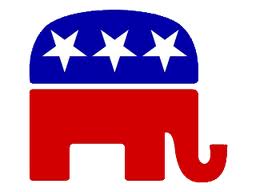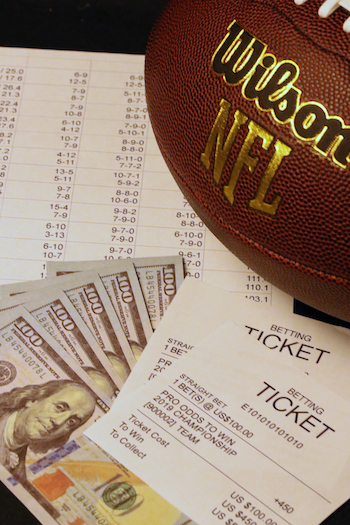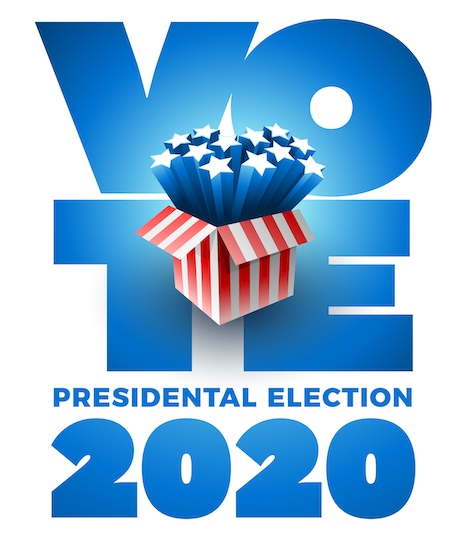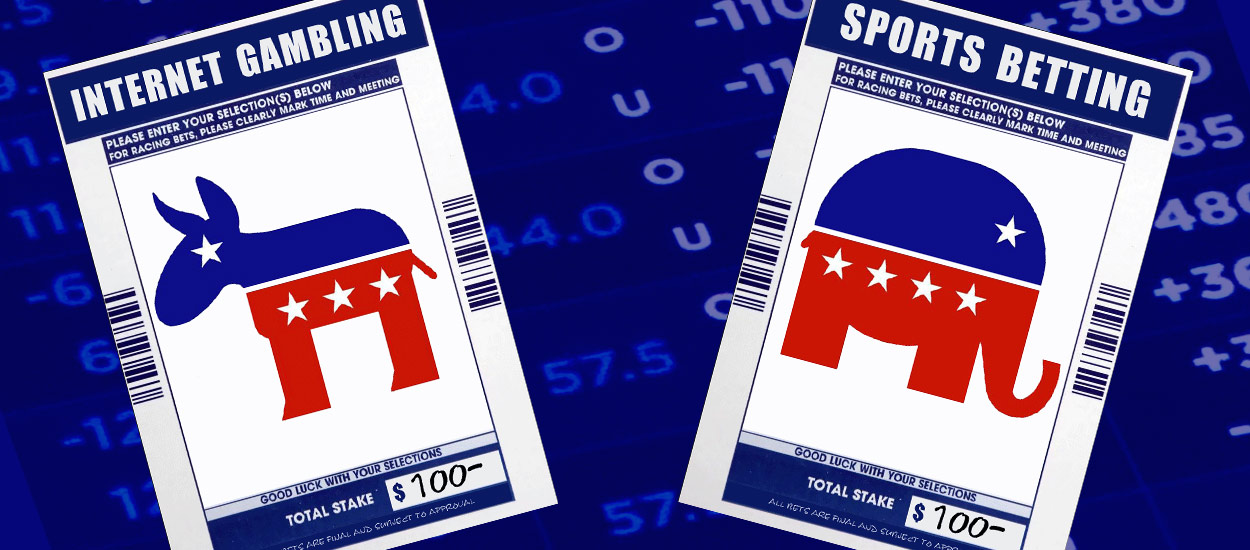A Biden victory and strong showing by Republicans is positive for gambling industry
There has always been a general belief in the gambling industry that the Republican party has held back gambling expansion in the United States. That belief stems from the fact that the party, since Ronald Reagan, have generally been neo-conservatives and were beholden to the wishes of the Evangelical churches who want gambling curtailed for fear it causes addiction and people need to be protected from themselves. Evangelical leaders in the past have told me that they believe gambling is a waste of money and according to their principals any money not used for the necessities of life should be given to charity or to the church. Until 1997 there was really little change in the area of gambling since the 1961 Wire Act. Land based casino gambling was already well established and most states introduced lotteries with little pushback. In 1994, however, the Internet became a viable form of communication and Internet gambling (along with pornography sites) became the most requested and used websites on the internet. Countries were quick to adopt too, as Antigua set up a tax-free zone where gambling companies could offer their products around the world in return for a licensing fee. Costa Rica and some small offshore European jurisdictions followed shortly thereafter along with Kahnawake, a small native reserve outside of Montreal. Seeing Internet gambling thriving, John Kyl, a Republican Arizona Senator, introduced a bill to try and ban Internet gambling for the same puritan and neo-conservative reasons that the Evangelical churches were screaming, namely that people had to be protected from themselves.
Until 1997 there was really little change in the area of gambling since the 1961 Wire Act. Land based casino gambling was already well established and most states introduced lotteries with little pushback. In 1994, however, the Internet became a viable form of communication and Internet gambling (along with pornography sites) became the most requested and used websites on the internet. Countries were quick to adopt too, as Antigua set up a tax-free zone where gambling companies could offer their products around the world in return for a licensing fee. Costa Rica and some small offshore European jurisdictions followed shortly thereafter along with Kahnawake, a small native reserve outside of Montreal. Seeing Internet gambling thriving, John Kyl, a Republican Arizona Senator, introduced a bill to try and ban Internet gambling for the same puritan and neo-conservative reasons that the Evangelical churches were screaming, namely that people had to be protected from themselves.
"Click the mouse, lose the house," became Kyl's go to phrase, meaning that if not banned, children or problem gamblers would gamble away a family’s security. That bill failed to gain momentum among Democrats as did subsequent bills until the UIGEA passed in 2006. The Unlawful Internet Gambling Enforcement Act was a form of Kyl's original bill and was attached to the Safe Port Act ensuring it would not be defeated. The UIGEA had few regulations, other than banning any Internet gambling that was not completely contained within a state and it provided carve outs for fantasy sports, lotteries and charitable gambling. The bill put the onus on the banks and other payment processors not to process offshore gambling transactions (which they deemed were illegal transactions) or else face serious fines or jail time. Republicans generally remained silent regarding the method in which it became law, but many democrats led by Congressman Barney Frank called the new law an affront to civil liberties and also called it unenforceable.
While Kyl's bill was thought to be for the first attack on Internet gambling, that is not true. Janet Reno, the Attorney General for Bill Clinton issued indictments against many sports betting companies who she claimed were violating the Wire Act, since in her opinion the Internet was just another form of communication banned under the 1961 Act. Reno, unlike Kyl, was less concerned by the fact that bets were being made on the Internet than the fact they were sports bets, which she claimed were strictly banned under the Wire Act. And Reno said that the method in which bets were placed was irrelevant. "You can't hide online and you can't hide offshore," Reno told the sportsbooks.
The focus of Democrats challenging any form of sports betting in the U.S. and the Republicans challenging any forms of online casino and poker betting became the norm until the present. The first challenge to the legality of online gambling took place in 2002 when a couple of plaintiffs indicated they were not liable for online gambling debts incurred when they used a Mastercard to purchase chips online to play at casinos, since they argued that the purchase of those chips violated the Wire Act. The 5th circuit Court, overseen by a Democrat judge, ruled for Mastercard saying that the Wire Act only applied to sports betting and ordered the plaintiff to pay their debts. Almost immediately, the Republican Department of Justice under George W Bush said that the court was wrong and issued an opinion that any bet made using a telephone, Internet or other form of communication was illegal under the Wire Act.
Online gambling push in 2011
Little was said on that ruling until 2011, since the UIGEA already provided enough ammunition to go after online casino sites. In 2011, however, several states that wanted to offer online gambling to help bolster state revenues asked the DoJ for clarity on whether online casino and poker were legal or not. While the UIGEA  allowed for online gambling that was completely intrastate, it did have a caveat that it did not replace any current federal law, meaning that if states wanted to offer online gambling, they still technically couldn't, since the Wire Act apparently made that illegal under the most recent Republican DoJ opinion. The DoJ under the Obama administration reviewed all the facts and deemed that the 2002 Mastercard decision was the most recent court decision on the issue and was accurate, and thus the Wire Act only applied to sports betting. That paved the way for states to offer online casino and poker betting and several states introduced bills to legalize these forms of gambling online, although to date only New Jersey, Nevada, Delaware and Pennsylvania have. Other states apparently are still not convinced of its legality and wanted a high court ruling on the issue confirming its legality.
allowed for online gambling that was completely intrastate, it did have a caveat that it did not replace any current federal law, meaning that if states wanted to offer online gambling, they still technically couldn't, since the Wire Act apparently made that illegal under the most recent Republican DoJ opinion. The DoJ under the Obama administration reviewed all the facts and deemed that the 2002 Mastercard decision was the most recent court decision on the issue and was accurate, and thus the Wire Act only applied to sports betting. That paved the way for states to offer online casino and poker betting and several states introduced bills to legalize these forms of gambling online, although to date only New Jersey, Nevada, Delaware and Pennsylvania have. Other states apparently are still not convinced of its legality and wanted a high court ruling on the issue confirming its legality.
That 2011 decision was almost immediately challenged by the Republicans, in-part due to casino magnate Sheldon Adelson, who believed that online gambling would cannibalize his land-based casino business. Adelson has marketed his casinos, the Venetian and Palazzo along with his other upscale casinos as a complete experience and Las Vegas Sands makes as much money on hotel rooms, food and entertainment as it does on casino wagering. Consequently, Adelson had Republicans who he donates to heavily, introduce a bill called Restore America’s Wire Act (RAWA) on Capital Hill, which would nullify the 2011 opinion. That venture went absolutely nowhere until Donald Trump won the election and in 2018 the DoJ issued a new opinion reversing the 2011 decision. Unfortunately for the new Republican DoJ, the New Hampshire Lottery sued the DoJ on that opinion and a New Hampshire District Court said the DoJ opinion was not valid and could not be implemented. The DoJ indicated it was still challenging that ruling and would likely take it higher if Trump were re-elected. Sports Betting
Sports Betting
While the Republicans were challenging online gambling, the same was not true with sports betting. In fact, the Republicans seemed to be promoting sports betting for nearly five years prior to the Supreme Court repeal of PASPA in 2017 and which opened the door to legal sports betting throughout the United States. In 2011, New Jersey governor Chris Christie, a Republican, said he was going to hold a referendum on legalizing sports betting in the state to help casinos and racetracks and urged New Jersey residents to vote for it. When residents voted for it, Christie immediately signed a bill to legalize it in the state despite the objections of most sports leagues. When the state voted in favor of legalized online gambling, however, Christie refused to sign that bill and only reluctantly did so with many stipulations in place that gave full control to Atlantic City casinos. And in the Supreme Court ruling on PASPA, all three dissenting votes to repeal PASPA were issued by Democrat judges. Every Republican justice supported the repeal.
It is unclear why the Republicans have been so hesitant to agree to online gambling but were at the forefront of legalized sports betting, although the answer could be with the origin of the bills themselves. The 1992 PASPA bill that got repealed was introduced by Democratic Senator Bill Bradley and was reluctantly signed into law by President George H. Bush, despite the DoJ suggesting the law was an afront to states rights and was likely unconstitutional. As well, most league officials that demanded the bill then and since have been strong Democrat supporters. The push for legal online gambling, however, has been almost exclusively from Democrat governors and legislators. And, as mentioned before, Sheldon Adelson has been yelling for online gambling to end and according to many insiders told the Republican party that if they wanted to keep receiving his support to their campaigns they would have to take up his cause.
2020 Election So that brings us to the issue at hand and why this election result was such an ideal one for gambling interests. First and foremost, the new 2018 DoJ opinion is all but dead. With Democrats now in charge there is absolutely no reason for the new DoJ to continue with a challenge to their own ruling, especially since Joe Biden was vice president at the time of the 2011 opinion. Moreover, they owe nothing to Sheldon Adelson who only supports Republicans. If anything, they answer more to companies like MGM and Caesars who want expanded online gambling and would actually prefer a federal law on the issue to get rid of any ambiguity to its legality and would allow for both interstate online gambling and poker networks. It's quite conceivable, therefore, that during this term, Joe Biden and the DoJ under his administration may try and repeal or at least amend the UIGEA to allow for online gambling both interstate and intrastate, as long as it does not include sports betting. COVID-19 also showed how important online gambling is, as states that had online gambling did remarkable business and kept padding state coffers, while the vast majority that were unable to offer online play struggled to get any revenue while casinos were closed. And even now, most land-based casinos are at such low capacity that it is hard for them to make money.
So that brings us to the issue at hand and why this election result was such an ideal one for gambling interests. First and foremost, the new 2018 DoJ opinion is all but dead. With Democrats now in charge there is absolutely no reason for the new DoJ to continue with a challenge to their own ruling, especially since Joe Biden was vice president at the time of the 2011 opinion. Moreover, they owe nothing to Sheldon Adelson who only supports Republicans. If anything, they answer more to companies like MGM and Caesars who want expanded online gambling and would actually prefer a federal law on the issue to get rid of any ambiguity to its legality and would allow for both interstate online gambling and poker networks. It's quite conceivable, therefore, that during this term, Joe Biden and the DoJ under his administration may try and repeal or at least amend the UIGEA to allow for online gambling both interstate and intrastate, as long as it does not include sports betting. COVID-19 also showed how important online gambling is, as states that had online gambling did remarkable business and kept padding state coffers, while the vast majority that were unable to offer online play struggled to get any revenue while casinos were closed. And even now, most land-based casinos are at such low capacity that it is hard for them to make money.
I asked Larry Walters, a first amendment attorney specializing in online gambling how he viewed the election results:
"It will be interesting to see if Biden’s Attorney General decides to go back to the Obama AG opinion or just ignore it. It seems reasonable to assume that he or she would adopt the Obama analysis, but this may not be a top priority for the incoming administration. If the old opinion is reaffirmed, that would clear the path to more online casino gambling. However, the Barr opinion does not seem to be a major impediment currently with various states legalizing intrastate casino gambling or sports betting. Notably, the Wire Act would still prohibit interstate sports betting despite the Obama AG opinion. The states can take some comfort in the exemption for intrastate casino gambling in the UIGEA regardless of how the AG’s office feels about the issue from administration to administration. A SCOTUS ruling would certainly help but is not necessary."
At the same time, Trump's great showing despite the fact he is not the least bit religious or puritan is great news for gambling. The only time Trump cared about the church is when he used it as a publicity stunt to hold a bible upside down in front of a church after dispersing peaceful protestors or to put a few 20 dollar bills in a collection plate just prior to the election. He likely has changed the focus of the Republican party for generations to come, as most Republican voters indicated that they now expect a politician like Trump who is focused on issues they care about like the economy and jobs and not social issues. If the Republicans try and put in a candidate that attempts to run a campaign based on dictating morals it will go over like a lead balloon and will be as welcome as a raccoon in the attic. As well, if the Democrats ever thought about going back on sports betting, it will never happen now that the Supreme Court is strongly controlled by Republican justices.
So, betting interests should be comforted with these election results. A Biden victory will spell the end to any concern about online gambling moving back to the days before the 2011 DoJ opinion, while a strong Trump showing means that any future Republican candidates will not be able to run on moral stances and in the end that will only help the betting community.
Read insights from Hartley Henderson every week here at OSGA and check out Hartley's RUMOR MILL!








































